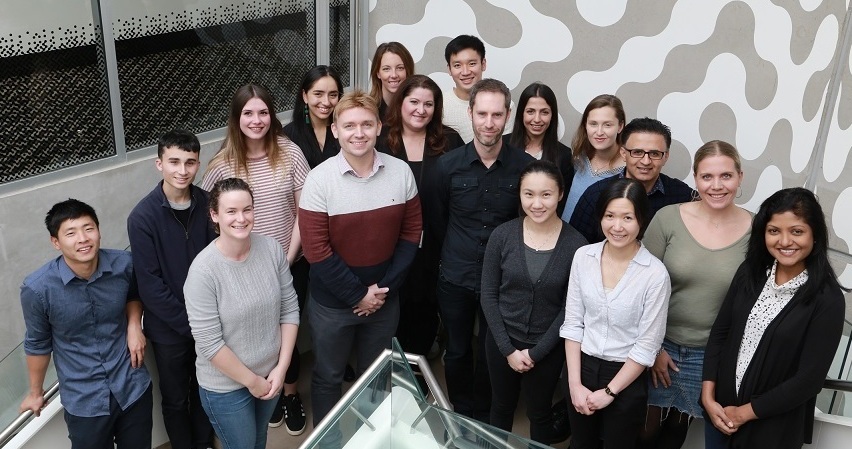In a recent announcement, FightMND committed an additional $9 million to 15 separate research projects as the fight to find effective treatments and a cure for the disease continues.
Among the projects, Florey researchers will lead two studies aimed at bringing new MND treatments to clinical trials and one study to develop additional therapeutic candidates.
More than 2,000 people have Motor Neuron Disease in Australia, with two people diagnosed each day. Backed by the extraordinary success of its Big Freeze campaign – and continuing support from the Australian community’s fundraising efforts – FightMND has invested $37.6 million into MND research projects since 2014.
Led by Associate Professor Brad Turner, Head of The Florey’s Motor Neuron Disease Group, the MND research team have made significant progress in their pursuit to develop effective treatment approaches for this disease.

The Florey’s Motor Neuron Disease Group
Most recently, the team have successfully built the largest collection of stem cells from MND patients for disease modelling and drug screening. Over 150 Australian MND patients donated cell samples to The Florey’s MND Drug Screening Program. The cells are transformed into personalised motor neurons and used for screening thousands of clinically approved medications for MND.
“These projects address important gaps in MND research and potential treatment using frontier science, such as designer DNA drugs, engineered receptor toolkits and stem cells,” Turner explained.
The Florey’s unwavering drive to improve the lives of people living with MND now continues through these new research projects that will commence in the next six months.
Dr Mouna Haidar will create a new mouse model which replicates core features of non-inherited MND, the most common form of the disease, to allow testing of potential treatments that may slow the progression or cure the disease.
An Inaugural Mid-Career Research Fellowship, awarded to Dr Fazel Shabanpoor, will aim to develop potential new MND treatments that prevent the production of toxic substances in motor neurons and improve the ability of a motor neuron to clear the toxic substances it produces.
Taking another approach to MND research, Associate Professor Lachlan Thompson is leading The Florey’s Neurogenesis and Neural Transplantation Laboratory. His team is investigating the benefits of stem cell therapy in MND with a view to advancing the pathway for a stem cell clinical trial.
“We think this can have a big impact down the track for MND patients”, commented Thompson.
In announcing the new funding and research projects, FightMND CEO Jamie Howden remarked that early and potentially positive signs from clinical trials and drug development are already being seen in research projects underway.
“We are grateful to FightMND and the amazing generosity of its supporters for funding this research,” added Turner.